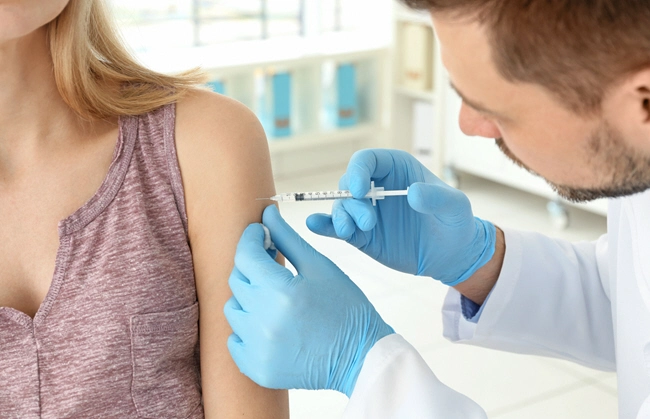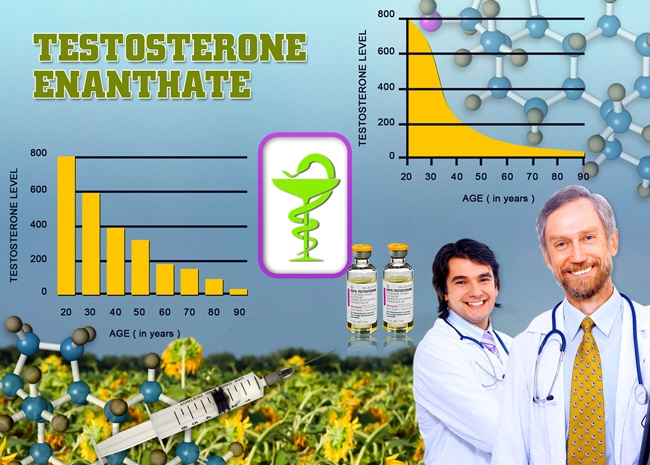
Introduction
Late-onset hypogonadism (LOH), also known as age-related hypogonadism, is a clinical and biochemical syndrome associated with advancing age and characterized by a deficiency in serum testosterone levels. This condition can lead to a variety of symptoms, including reduced libido, fatigue, depression, and decreased muscle mass, which can significantly impact the quality of life for American men. Testosterone therapy has emerged as a potential treatment for managing these symptoms. This article delves into a longitudinal analysis of the role of testosterone therapy in managing LOH, offering insights into its efficacy and safety for American men.
Symptoms and Diagnosis of Late-onset Hypogonadism
Late-onset hypogonadism is often underdiagnosed due to its gradual onset and the variability of its symptoms. Common signs include a decline in sexual desire, erectile dysfunction, decreased energy levels, mood changes, and a reduction in muscle and bone mass. Diagnosis typically involves a thorough clinical evaluation, including a detailed medical history and physical examination, followed by laboratory tests to measure serum testosterone levels. It is crucial for American men experiencing these symptoms to consult healthcare professionals for accurate diagnosis and management.
The Role of Testosterone Therapy
Testosterone therapy aims to restore testosterone levels to a normal range, thereby alleviating the symptoms associated with LOH. Various forms of testosterone replacement are available, including injections, gels, patches, and implants. The choice of therapy depends on individual patient needs, preferences, and medical history. Longitudinal studies have shown that testosterone therapy can significantly improve libido, mood, energy levels, and physical function in men with LOH. However, it is essential to monitor therapy closely to ensure optimal dosing and to mitigate potential side effects.
Efficacy and Long-term Outcomes
Longitudinal analyses have provided valuable data on the efficacy of testosterone therapy over extended periods. Studies indicate that men who adhere to testosterone therapy experience sustained improvements in sexual function, mood, and overall vitality. Moreover, some research suggests that testosterone therapy may have additional benefits, such as reducing the risk of osteoporosis and improving cognitive function. However, the long-term outcomes are still being explored, and continuous monitoring is necessary to assess the therapy's impact on cardiovascular health and prostate health.
Safety Considerations and Monitoring
While testosterone therapy can offer significant benefits, it is not without risks. Potential side effects include acne, sleep apnea, and an increased risk of erythrocytosis (elevated red blood cell count). There is also ongoing debate regarding the therapy's impact on cardiovascular health and prostate cancer risk. Therefore, it is crucial for American men considering testosterone therapy to undergo regular monitoring, including blood tests to assess testosterone levels and hematocrit, as well as prostate-specific antigen (PSA) tests to monitor prostate health.
Patient Selection and Individualized Treatment Plans
Not all men with low testosterone levels will benefit from testosterone therapy. Patient selection should be based on a comprehensive evaluation of symptoms, medical history, and laboratory results. An individualized treatment plan, tailored to each patient's specific needs and health status, is essential for maximizing the benefits of therapy while minimizing risks. Collaboration between patients and healthcare providers is key to achieving the best possible outcomes.
Conclusion
Testosterone therapy represents a promising approach to managing the symptoms of late-onset hypogonadism in American men. Longitudinal studies have demonstrated its potential to improve quality of life by enhancing sexual function, mood, and physical vitality. However, careful patient selection, individualized treatment plans, and diligent monitoring are essential to ensure the therapy's safety and efficacy. As research continues to evolve, it is hoped that further insights will refine the use of testosterone therapy, offering even greater benefits to American men affected by LOH.
Contact Us Today For A Free Consultation
Dear Patient,
Once you have completing the above contact form, for security purposes and confirmation, please confirm your information by calling us.
Please call now: 1-800-380-5339.
Welcoming You To Our Clinic, Professor Tom Henderson.

- Exploring Alternative Therapies for Late-Onset Hypogonadism in American Males [Last Updated On: February 25th, 2025] [Originally Added On: February 25th, 2025]
- Late-Onset Hypogonadism: Symptoms, Diagnosis, and Comprehensive Management Strategies [Last Updated On: March 18th, 2025] [Originally Added On: March 18th, 2025]
- Economic Impact of Late-Onset Hypogonadism in Aging U.S. Men: Challenges and Strategies [Last Updated On: March 18th, 2025] [Originally Added On: March 18th, 2025]
- Late-Onset Hypogonadism: Impact on Muscle Mass and Treatment Options in American Men [Last Updated On: March 18th, 2025] [Originally Added On: March 18th, 2025]
- Genetic Factors in Late-Onset Hypogonadism: Insights for American Males [Last Updated On: March 18th, 2025] [Originally Added On: March 18th, 2025]
- Innovative Treatments and Future Directions for Late-Onset Hypogonadism in American Males [Last Updated On: March 18th, 2025] [Originally Added On: March 18th, 2025]
- Managing Late-Onset Hypogonadism in Men Over 40: Diagnosis, Treatment, and Lifestyle [Last Updated On: March 20th, 2025] [Originally Added On: March 20th, 2025]
- Late-Onset Hypogonadism: Impact on Fertility and Management in American Men [Last Updated On: March 20th, 2025] [Originally Added On: March 20th, 2025]
- Managing Late-Onset Hypogonadism: Symptoms, Screening, and Lifestyle Strategies for American Men [Last Updated On: March 20th, 2025] [Originally Added On: March 20th, 2025]
- Late-Onset Hypogonadism: Impacts on Mood, Energy, and Treatment Approaches [Last Updated On: March 21st, 2025] [Originally Added On: March 21st, 2025]
- Late-Onset Hypogonadism in American Men: Diagnosis, Treatment, and Vitality Maintenance [Last Updated On: March 21st, 2025] [Originally Added On: March 21st, 2025]
- Late-Onset Hypogonadism: Impact on Sleep and Health in American Men [Last Updated On: March 22nd, 2025] [Originally Added On: March 22nd, 2025]
- Managing Late-Onset Hypogonadism: Nutrition, Diet, and Lifestyle Strategies for American Men [Last Updated On: March 22nd, 2025] [Originally Added On: March 22nd, 2025]
- Late-Onset Hypogonadism in American Men: Symptoms, Treatment, and Lifestyle Management [Last Updated On: March 22nd, 2025] [Originally Added On: March 22nd, 2025]
- Late-Onset Hypogonadism in American Males: Prevalence, Impact, and Management Strategies [Last Updated On: March 22nd, 2025] [Originally Added On: March 22nd, 2025]
- Holistic Management of Late-Onset Hypogonadism in American Males: A Comprehensive Approach [Last Updated On: March 23rd, 2025] [Originally Added On: March 23rd, 2025]
- Early Intervention Benefits for Late-Onset Hypogonadism in American Men [Last Updated On: March 23rd, 2025] [Originally Added On: March 23rd, 2025]
- Long-term Effects of Late-Onset Hypogonadism on American Men's Health and Well-being [Last Updated On: March 23rd, 2025] [Originally Added On: March 23rd, 2025]
- Managing Late-Onset Hypogonadism: Symptoms, Treatment, and Lifestyle Strategies for American Men [Last Updated On: March 23rd, 2025] [Originally Added On: March 23rd, 2025]
- Late-Onset Hypogonadism: Overcoming Stigma and Enhancing Life Quality in American Men [Last Updated On: March 23rd, 2025] [Originally Added On: March 23rd, 2025]
- Dietary Strategies to Manage Late-Onset Hypogonadism in American Men [Last Updated On: March 23rd, 2025] [Originally Added On: March 23rd, 2025]
- Diagnosing Late-Onset Hypogonadism in American Males: A Comprehensive Guide [Last Updated On: March 24th, 2025] [Originally Added On: March 24th, 2025]
- Exploring the Link Between Late-Onset Hypogonadism and Diabetes in American Males [Last Updated On: March 24th, 2025] [Originally Added On: March 24th, 2025]
- Late-Onset Hypogonadism: Cognitive Impacts and Management in American Men [Last Updated On: March 24th, 2025] [Originally Added On: March 24th, 2025]
- Exercise Boosts Testosterone: Managing Late-Onset Hypogonadism in American Males [Last Updated On: March 24th, 2025] [Originally Added On: March 24th, 2025]
- Managing Late-Onset Hypogonadism: Symptoms, Diagnosis, and Treatment in American Men [Last Updated On: March 24th, 2025] [Originally Added On: March 24th, 2025]
- Managing Late-Onset Hypogonadism: Diagnosis, Treatment, and Independence for Aging American Men [Last Updated On: March 24th, 2025] [Originally Added On: March 24th, 2025]
- Hormone Replacement Therapy: Managing Late-Onset Hypogonadism in American Men [Last Updated On: March 24th, 2025] [Originally Added On: March 24th, 2025]
- Late-Onset Hypogonadism: Understanding Treatments and Managing Side Effects [Last Updated On: March 25th, 2025] [Originally Added On: March 25th, 2025]
- Understanding Late-Onset Hypogonadism: Symptoms, Diagnosis, and Management in Aging Men [Last Updated On: March 25th, 2025] [Originally Added On: March 25th, 2025]
- Stress and Late-Onset Hypogonadism: Impact and Management in American Males [Last Updated On: March 25th, 2025] [Originally Added On: March 25th, 2025]
- Understanding Late-Onset Hypogonadism: Myths, Facts, and Effective Management Strategies [Last Updated On: March 25th, 2025] [Originally Added On: March 25th, 2025]
- Managing Late-Onset Hypogonadism: A Multidisciplinary Approach for American Men [Last Updated On: March 25th, 2025] [Originally Added On: March 25th, 2025]
- Community Support Enhances Late-Onset Hypogonadism Management in American Males [Last Updated On: March 25th, 2025] [Originally Added On: March 25th, 2025]
- Managing Late-Onset Hypogonadism: Emotional Journey and Support for American Men [Last Updated On: March 25th, 2025] [Originally Added On: March 25th, 2025]
- Late-Onset Hypogonadism: Impact on American Men's Careers and Workplace Strategies [Last Updated On: March 25th, 2025] [Originally Added On: March 25th, 2025]
- Late-Onset Hypogonadism: Impact on Men's Health and Intimate Relationships in America [Last Updated On: March 25th, 2025] [Originally Added On: March 25th, 2025]
- Late-Onset Hypogonadism in American Males: Education, Symptoms, and Management Strategies [Last Updated On: March 26th, 2025] [Originally Added On: March 26th, 2025]
- Late-Onset Hypogonadism: Health Risks and Treatment Options for American Men [Last Updated On: March 26th, 2025] [Originally Added On: March 26th, 2025]
- Late-Onset Hypogonadism: Symptoms, Diagnosis, and Management in American Men [Last Updated On: March 26th, 2025] [Originally Added On: March 26th, 2025]
- Late-Onset Hypogonadism: Health Impacts and Financial Challenges for American Men [Last Updated On: March 26th, 2025] [Originally Added On: March 26th, 2025]
- Late-Onset Hypogonadism: Symptoms, Diagnosis, and Management Strategies for American Men [Last Updated On: March 26th, 2025] [Originally Added On: March 26th, 2025]
- Legal Aspects of Late-Onset Hypogonadism: Diagnosis, Treatment, and Rights in the U.S. [Last Updated On: March 27th, 2025] [Originally Added On: March 27th, 2025]
- Managing Late-Onset Hypogonadism: Symptoms, Diagnosis, and Treatment for American Men [Last Updated On: March 27th, 2025] [Originally Added On: March 27th, 2025]
- Late-Onset Hypogonadism: Cultural Impacts on American Men's Health and Treatment [Last Updated On: March 27th, 2025] [Originally Added On: March 27th, 2025]
- Late-Onset Hypogonadism: Impact, Detection, and Management in American Males [Last Updated On: March 28th, 2025] [Originally Added On: March 28th, 2025]
- Advocating for Better Care in Late-Onset Hypogonadism: A Call to Action for American Men [Last Updated On: March 28th, 2025] [Originally Added On: March 28th, 2025]
- Managing Late-Onset Hypogonadism: Diagnosis, Treatments, and Lifestyle Strategies for American Men [Last Updated On: March 28th, 2025] [Originally Added On: March 28th, 2025]
- Technological Advances in Diagnosing Late-Onset Hypogonadism in Aging American Men [Last Updated On: March 28th, 2025] [Originally Added On: March 28th, 2025]
- Late-Onset Hypogonadism: Symptoms, Impact, and Vital Role of Family Support in American Males [Last Updated On: March 29th, 2025] [Originally Added On: March 29th, 2025]
- Late-Onset Hypogonadism: Understanding Diagnosis and Impact on American Men's Health [Last Updated On: March 29th, 2025] [Originally Added On: March 29th, 2025]
- Managing Late-Onset Hypogonadism: Diet, Exercise, Sleep, and Stress Strategies for American Men [Last Updated On: March 30th, 2025] [Originally Added On: March 30th, 2025]
- Managing Late-Onset Hypogonadism: The Vital Role of Mental Health Professionals [Last Updated On: March 30th, 2025] [Originally Added On: March 30th, 2025]
- Late-Onset Hypogonadism's Impact on American Men's Self-Esteem: A Comprehensive Overview [Last Updated On: April 3rd, 2025] [Originally Added On: April 3rd, 2025]
- Late-Onset Hypogonadism in American Males: Peer Support and Holistic Management [Last Updated On: April 4th, 2025] [Originally Added On: April 4th, 2025]
- Navigating Insurance Coverage for Late-Onset Hypogonadism Treatment in American Men [Last Updated On: April 4th, 2025] [Originally Added On: April 4th, 2025]
- Late-Onset Hypogonadism: Social Impacts and Support for American Men [Last Updated On: April 5th, 2025] [Originally Added On: April 5th, 2025]
- Research Advances in Late-Onset Hypogonadism: Diagnosis, Treatment, and Future Prospects [Last Updated On: April 5th, 2025] [Originally Added On: April 5th, 2025]
- Managing Late-Onset Hypogonadism: Stress Reduction Strategies for American Men [Last Updated On: April 6th, 2025] [Originally Added On: April 6th, 2025]
- Late-Onset Hypogonadism: Advocacy's Role in Diagnosis, Treatment, and Support for American Men [Last Updated On: April 6th, 2025] [Originally Added On: April 6th, 2025]
- Understanding Late-Onset Hypogonadism: Symptoms, Diagnosis, and Management for American Males [Last Updated On: April 7th, 2025] [Originally Added On: April 7th, 2025]
- Nutritionists' Role in Managing Late-Onset Hypogonadism Through Diet and Lifestyle [Last Updated On: April 10th, 2025] [Originally Added On: April 10th, 2025]
- Managing Late-Onset Hypogonadism: Strategies for American Men's Mental Health [Last Updated On: April 10th, 2025] [Originally Added On: April 10th, 2025]
- Late-Onset Hypogonadism in American Males: Symptoms, Diagnosis, and Management Strategies [Last Updated On: April 11th, 2025] [Originally Added On: April 11th, 2025]
- Managing Late-Onset Hypogonadism: Symptoms, Diagnosis, and Treatment for American Men [Last Updated On: April 12th, 2025] [Originally Added On: April 12th, 2025]
- Managing Late-Onset Hypogonadism: Symptoms, Diagnosis, and Treatment Options for Aging Men [Last Updated On: April 12th, 2025] [Originally Added On: April 12th, 2025]
- Managing Late-Onset Hypogonadism: Exercise and Lifestyle Strategies for American Men [Last Updated On: April 13th, 2025] [Originally Added On: April 13th, 2025]
- Late-Onset Hypogonadism: Emotional Impact and Support Strategies for American Men [Last Updated On: April 15th, 2025] [Originally Added On: April 15th, 2025]
- Late-Onset Hypogonadism: Impacts on American Men's Professional Performance and Career [Last Updated On: April 15th, 2025] [Originally Added On: April 15th, 2025]
- Endocrinologists' Role in Managing Late-Onset Hypogonadism in Aging American Males [Last Updated On: April 16th, 2025] [Originally Added On: April 16th, 2025]
- Late-Onset Hypogonadism in American Males: Prevalence, Diagnosis, and Treatment Strategies [Last Updated On: April 16th, 2025] [Originally Added On: April 16th, 2025]
- Late-Onset Hypogonadism: Symptoms, Diagnosis, and Personalized Treatment for American Men [Last Updated On: April 16th, 2025] [Originally Added On: April 16th, 2025]
- Managing Late-Onset Hypogonadism: Diet, Exercise, Sleep, and Stress Strategies for American Men [Last Updated On: April 18th, 2025] [Originally Added On: April 18th, 2025]
- Comprehensive Care for Late-Onset Hypogonadism in American Males: A Holistic Approach [Last Updated On: April 18th, 2025] [Originally Added On: April 18th, 2025]
- Managing Late-Onset Hypogonadism: Diet, Exercise, Sleep, and Holistic Approaches for American Men [Last Updated On: April 18th, 2025] [Originally Added On: April 18th, 2025]
- Managing Late-Onset Hypogonadism: Impact, Diagnosis, and Treatment for American Men [Last Updated On: April 19th, 2025] [Originally Added On: April 19th, 2025]
- Managing Late-Onset Hypogonadism: Leveraging Community Resources for Holistic Care [Last Updated On: April 20th, 2025] [Originally Added On: April 20th, 2025]
- Therapists' Crucial Role in Managing Late-Onset Hypogonadism in American Males [Last Updated On: April 20th, 2025] [Originally Added On: April 20th, 2025]
- Late-Onset Hypogonadism: Impact, Challenges, and Advocacy for American Men's Health [Last Updated On: April 21st, 2025] [Originally Added On: April 21st, 2025]
- Late-Onset Hypogonadism: Symptoms, Impacts, and Management in American Men [Last Updated On: April 21st, 2025] [Originally Added On: April 21st, 2025]








